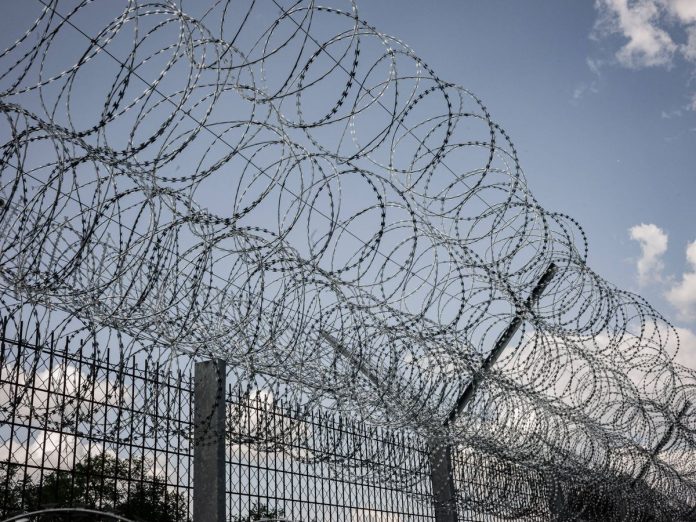As governments across Europe resort to increasingly repressive measures to stop illegal migration, the business of border control is becoming a bigger and bigger business, Voxeurop reports.
Mora Salazar, a small family-owned company, previously sold fences for homes and small businesses. In 2006, Spain hired Mora Salazar to install razor wire on the border walls of Ceuta and Melilla. The company has now grown to the size of a multinational corporation, renamed European Security Fencing, with offices in Brussels and Berlin and business on more than 30 borders around the world. The company’s owner said:
“When the Socialists get into the government, I remove them. If the conservatives are reelected, I put them back. I have already taken them down and put them up four times and each time I get three million euros.”
The companies installing the fences in Ceuta and Melilla count more than 120 revolving doors, including a dozen former government ministers from the Popular Party (PP) and Socialist Party (PSOE). Spain does not voice the total cost of these walls “for reasons of national security”. This investigation analysed 188 public contracts for the construction of these two fences, worth 133 million euros.
The biggest boom in the border fence business in Europe came after Viktor Orban’s decision to fence off Hungary’s border with Serbia in 2015 amid the “refugee crisis”. Orbán spent more than €2 billion to build this wall. Among the companies that benefited the most is MetALCOM Zrt, whose main shareholder is Zoltan Bozo, a businessman and member of Orban’s Fidesz party, as Index.hu media found out, according to Voxeurop.
A host of European countries quickly followed suit. Calais, a small historic town in France and a destination for migrants trying to reach the UK across the Channel, is now surrounded by 65 kilometres of fences fitted with the latest technology, including state-of-the-art drones, night cameras, footstep and CO2 detectors to detect migrants by their breath.
Greece, which is a staging post for migrants who plan to travel further into Europe, has allocated 819 million euros in European funds to further strengthen its border until 2027. The borders of the 27 EU member states are currently fortified with 1,800 kilometres of walls. The Slovenian Minister of the Interior said:
“The erection of fences is not an adequate solution to prevent irregular migration.”
The dismantling of the border fence between Slovenia and Croatia caused a major controversy: Slovenia awarded €7 million to Minis, the same company that installed the fence in 2015.
A year before the tender was won, Minis “had no employees and was located at the same address as the local branch of the ruling party at the time,” says Transparency International Slovenia. The contract was awarded without a public tender.”
European governments see displacement as a security issue and prioritise wall funding over socially relevant investments. “Have you seen the road here? We have been waiting for years for a new one, and they built the wall instantly,” says an elderly woman from Bulgaria – one of the EU’s poorest countries – who lives on the border with Turkey, Voxeurop reports.
Border walls are a double-edged weapon. Both smugglers and authoritarian governments bordering Europe play on the other side of the business. On the one hand, illegals raise the price for transporting migrants in increasingly dangerous and brutal conditions.
On the other hand, increasingly militarised walls allow governments and dictatorial regimes from Turkey to Morocco, Belarus and Tunisia to use migrants as weapons. These regimes condition the expansion of their control/influence on the other side of the border in exchange for money, diplomatic support and other concessions from the EU.
